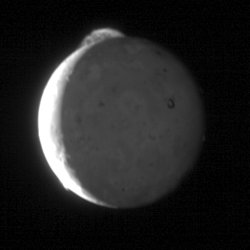Theoretical planetology

Theoretical planetology is when really smart people use math and science to figure out how planets work and behave. We know that there are lots of planets out there, but we can't visit them all or even see them very well. So, scientists use principles of physics, chemistry, and other sciences to make predictions and learn more about them.
A lot of what we know about planets comes from studying our own planet, Earth. Scientists use measurements and observations from Earth to help them understand things like the formation, atmosphere, temperature, and weather patterns of other planets. They also use computer models to simulate what might be happening on planets far away based on what we do know about them.
For example, scientists might use theoretical planetology to figure out what the surface of a planet might look like or what its atmosphere is made of. They might also use it to make predictions about a planet's gravity, magnetic field, or movement around its star.
Theoretical planetology is important because it helps us better understand how the universe works and how to explore it. By understanding the behavior of other planets, we can learn more about the formation and evolution of our own solar system, as well as the possibility of finding life elsewhere in the universe.
A lot of what we know about planets comes from studying our own planet, Earth. Scientists use measurements and observations from Earth to help them understand things like the formation, atmosphere, temperature, and weather patterns of other planets. They also use computer models to simulate what might be happening on planets far away based on what we do know about them.
For example, scientists might use theoretical planetology to figure out what the surface of a planet might look like or what its atmosphere is made of. They might also use it to make predictions about a planet's gravity, magnetic field, or movement around its star.
Theoretical planetology is important because it helps us better understand how the universe works and how to explore it. By understanding the behavior of other planets, we can learn more about the formation and evolution of our own solar system, as well as the possibility of finding life elsewhere in the universe.
Related topics others have asked about:
